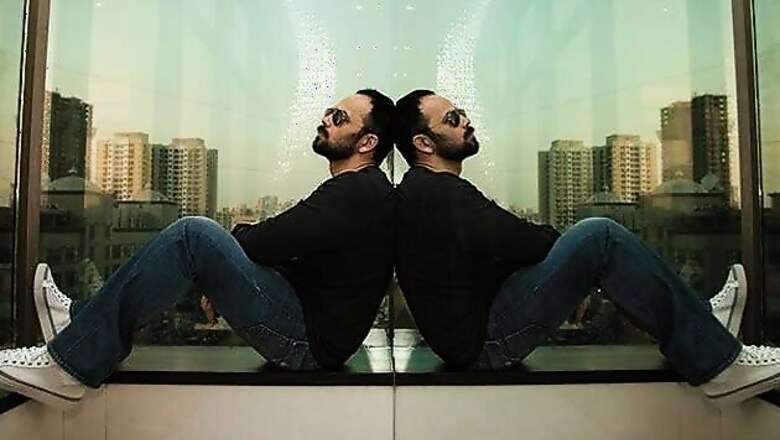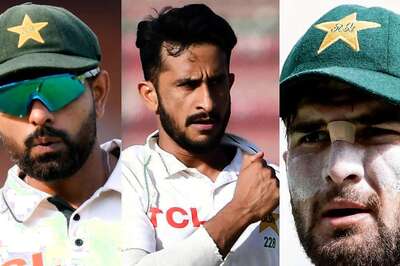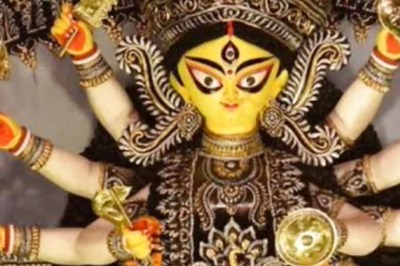
views
When Rohit Shetty steps on the set of any of his movies, he rips off (or, perhaps, more gently removes) his day clothes and slips on his Superman cape. We aren't saying this. He does. Before you peg him as 'typically Bollywood arrogant', listen to why he likens himself to the original superhero. Shetty, 40, isn't in this for his 15 minutes of fame. "I don't react to anything-success or criticism. I've trained myself over the years to have zero reactions," he says.
He comes, does his bit and goes back to his own world. At the end of every day, the saviour of the box office goes home as Clark Kent.
Censured by critics and devoured by middle-class audiences quite unfailingly for a decade, Shetty is B-town's most sought-after director today with A-list producers and actors vying to work with him. According to Forbes India estimates, he is the highest paid as well.
Following the record-breaking success of 'Chennai Express', a film that gave a fresh lease of life to actor Shah Rukh Khan's career, Shetty has retired to the solitude of his plush office in suburban Mumbai to get on with his tenth film in as many years. You start anew with every film, he says. Only three months after delivering his seventh successive hit, the workaholic Shetty is browsing through the 150th draft of his next project Singham 2.
For a man whose films are ostentatious, there's a certain understated air about his personality. He's usually unfazed by bouquets and brickbats and this is sometimes misconstrued as arrogance. He doesn't read newspapers. He doesn't keep track of his films' earnings. He doesn't tune into speculations. He doesn't attend parties or premieres. "I don't focus my energy on these things because in our business you will always be remembered by the last Friday," says Shetty who has few interests beyond films (he likes his sports cars and flashy tattoos).
Despite his matter-of-fact attitude, he savours special calls like the one he received from Rajinikanth after Singham. "I couldn't believe it. He said he loved my film. It was one of the high points of my career," says Shetty.
It is a career that is dotted with several highs. The only filmmaker, since Manmohan Desai in the '70s-80s, to give seven mammoth hits in a row, Shetty is now synonymous with box-office glory. Touted as the 'president of the Rs 100-crore club' and a director who is 'critic-proof', Shetty attributes his success to his instincts about the audience.
He has an ear to the ground and is acquainted with the trials and tribulations of lower-middle-class families and their desire for 'a few good laughs' and nothing more. "We're not Hollywood; travel 100 kilometres from Mumbai and the audience is not the same," he says. "My critics go to Starbucks, read the news, interact with like-minded people and think that is the end of India. They do have a taste and a sensibility but the world is not them. The world is my audience."
Shetty's early life is inseparable from what he is today, and the connection that he stitches with the audience is a result of that.
Son of legendary fight master and villain MB Shetty (popularly known as Fighter Shetty), he decided very early that he would join the film industry 'to be like my father'. But calamity struck when he was 11; his father died, leaving behind a family of four. With no money for rent, the Shettys moved to the far-northern suburb of Dahisar (almost a village then) to live with Rohit's grandmother. His mother took up work as a junior artiste at Natraj Studios in Andheri (the film hub) while Shetty boarded a Virar local every morning to get to his school (St Mary's High) in Santa Cruz. Later, when they moved to Malad, he would walk two hours to Natraj when he ran out of conveyance money.
"It was a culture shock because when I was born we had everything. My father was the biggest and the most popular action director of that time," Shetty says. "We had seen the glamour, glory and money. And then everything just vanished."


















Comments
0 comment